
ICAS Bulletin (online ISSN 2836-3418, print ISSN 2836-340X) is published every other week throughout the year at 1919 M St NW, Suite 310, Washington, DC 20036.
The online version of ICAS Bulletin can be found at chinaus-icas.org/bulletins/.
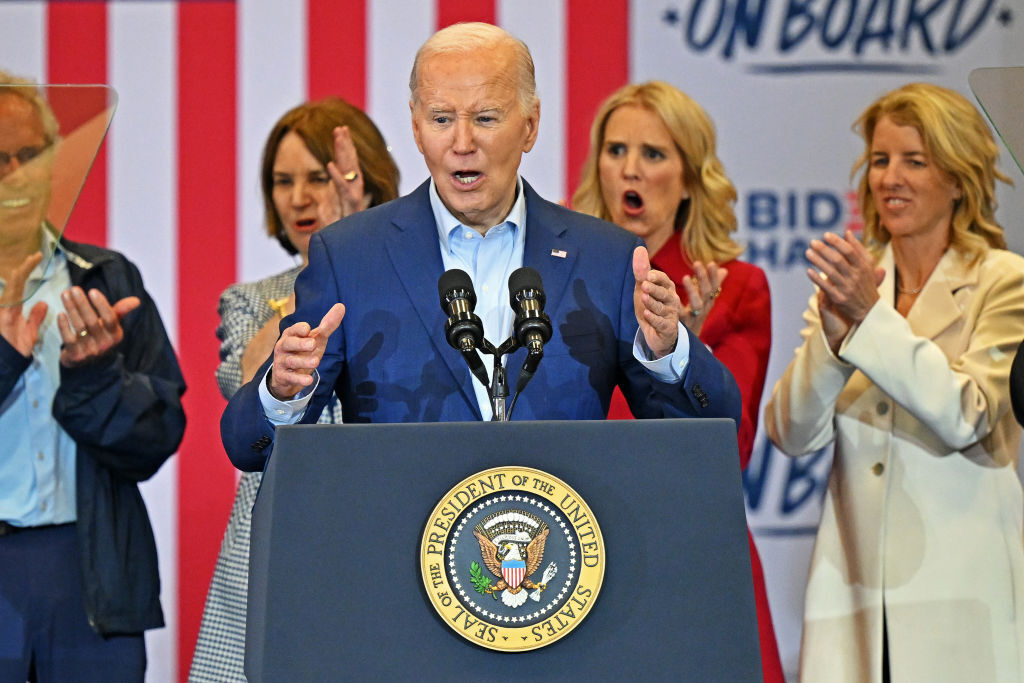
– Head of the U.S. Indo-Pacific Command John Aquilino, speaking to reporters in Tokyo, says “there’s a conscious decision to fund military capability” in spite of China’s “drastically” reduced economy, which is “concerning.”
– Rahul Gupta, director of the U.S. Office of National Drug Control Policy, called for “rigorous, independent investigations” into how 23 Chinese swimmers were cleared in spite of testing positive for a banned drug.
– U.S. Commerce Secretary Gina Raimondo said the chip powering Huawei’s Mate 60 Pro phone is not as advanced as U.S.-made chips, arguing that it shows the U.S. limitations on Huawei since 2019 have been effective.
– President Joe Biden called China “xenophobic” and its trade practices “cheating” as he highlighted China’s economic difficulties when addressing at a campaign rally in Pittsburgh on April 17. The President also called for tripling tariffs on some of China’s steel and aluminum imports in his remarks.
– Speaking at a conference at Vanderbilt University, Director of the U.S. National Security Agency Timothy Haugh said the case of infrastructure intrusions by Volt Typhoon, a Chinese network of cyber hackers, is “an example of how China has approached establishing access to put things under threat” and sends “a pretty clear signal of how they would use cyberspace in a crisis.”
– On April 16, U.S. Trade Representative Katherine Tai said that the administration is “taking a serious look at our existing tools” in addressing the U.S. dependencies and vulnerabilities in multiple sectors vis-à-vis China, during her annual hearing before the House Ways and Means Committee on the president’s 2024 trade policy agenda.
Associated News References:
“China’s Economy Is ‘Failing,’ U.S. Indo-Pacific Commander Says,” The Wall Street Journal, April 23 [Paywall]
“Top Biden Official Calls for Inquiry Into Chinese Doping Case,” The New York Times, April 22 [Paywall]
“US commerce secretary downplays chip in advanced Huawei phone,” Reuters, April 22
“Biden Calls China ‘Xenophobic’ as He Ramps Up Campaign Rhetoric,” Time, April 18
“Biden calls for tripling tariffs on Chinese metals,” BBC, April 17
“China Could Threaten Critical Infrastructure in a Conflict, N.S.A. Chief Says,” The New York Times, April 17 [Paywall]
“Tensions flare between Tai, GOP at Ways & Means trade hearing,” Inside U.S. Trade, April 16 [Paywall]
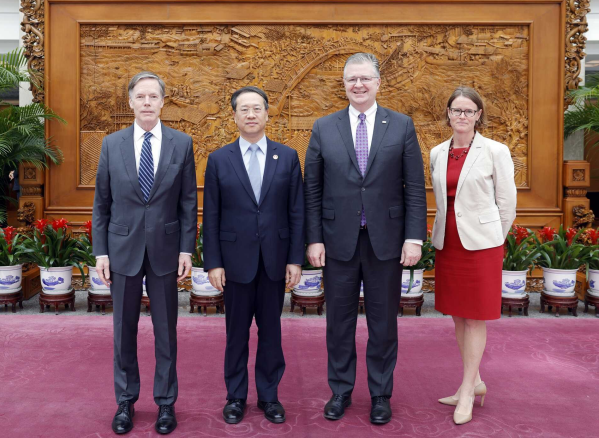
– From April 24-26, U.S. Secretary of State Antony Blinken will travel to China to discuss issues related to the Russian-Ukraine war, the Middle East conflict, emerging technologies, cross-strait issues, and the South China Sea.
– Meanwhile, a Chinese foreign ministry official said that U.S.-China relations are stabilizing despite U.S. actions harming Chinese interests and the “bottom line.”
– During his trip, Secretary Blinken is also expected to address the actions China must take for the State Department to downgrade its Level 3 travel warning, which has inhibited people-to-people ties in general.
– According to Capitol Hill staffers, Chinese Embassy diplomats have been holding meetings with congressional staff to lobby against the legislation that would force a sale of TikTok, which is owned by a Beijing-based company.
– U.S. Defense Secretary Lloyd Austin and Chinese Defense Minister Dong Jun held the first bilateral communication between U.S. and Chinese heads of defense in 18 months, which addressed freedom of navigation, Russia-Ukraine War, North Korea, and the U.S. commitment to the “long-standing one China policy.”
– Under the new agreement on countering money laundering, the U.S. Treasury Department and People’s Bank of China held the first meeting on April 16 discussing two countries’ approach to crypto currency, financial technology regulation and enforcement. The two sides expect to hold virtual meetings every quarter.
– From April 14-16, Assistant Secretary of State for East Asian and Pacific Affairs Daniel Kritenbrink and National Security Council Senior Director for China and Taiwan Affairs Sarah Beran met officials in Beijing, including Foreign Vice-Minister Ma Zhaoxu. Both sides underlined the importance of “open communication to responsibly manage competition,” “manage areas of difference,” and “reduce the risk of mismanagement.”
Associated News References:
“Blinken returns to China amid ongoing tensions, with no breakthrough expected,” Voice of America, April 23
“China-US relations stable despite US ‘interference’, Chinese official says,” Reuters, April 23
“Blinken to raise risks for American travelers on trip to Beijing,” The Hill, April 22
“Chinese diplomats are quietly meeting with Hill staffers about TikTok,” Politico, April 17
“After chilly silence, US SecDef, China defense minister hold first talks,” Breaking Defense, April 16
“U.S., China to Cooperate in the Fight Against Dirty Money,” The Wall Street Journal, April 16 [Paywall]
“Senior US diplomats hold ‘frank and constructive’ talks with Chinese officials,” MSN, April 15
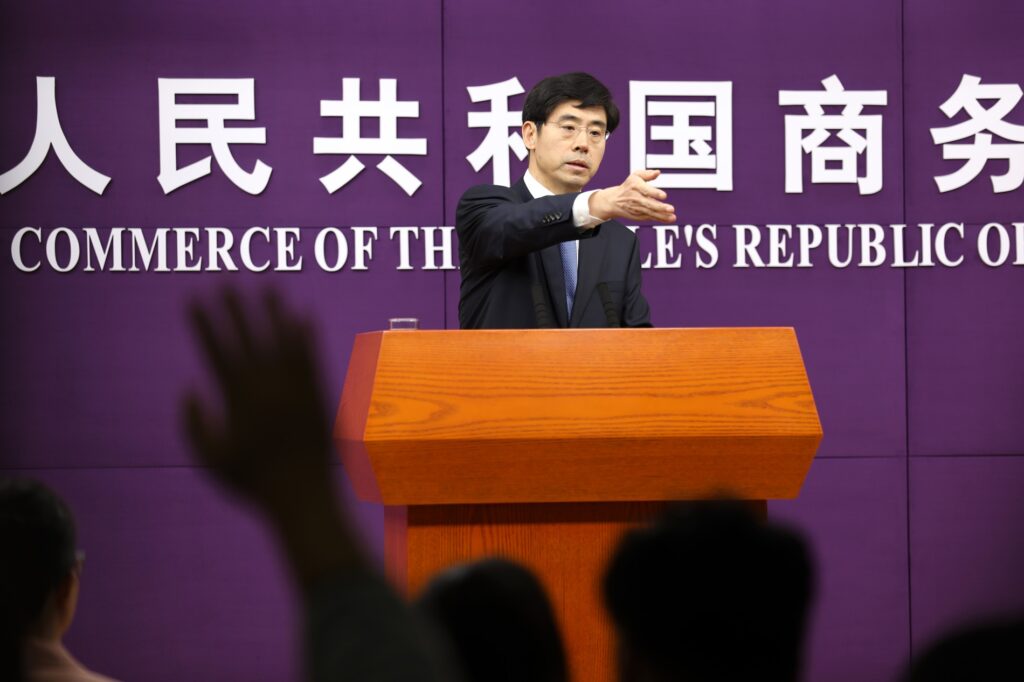
– On April 19, Apple said it pulled WhatsApp, Threads, Signal and Telegram from the App Store in China after the Cyberspace Administration of China ordered the apps to be removed “based on national security concerns.”
– On April 19, one day after China openly objected to the U.S. increasing tariffs and vowed to take necessary protective measures, China’s Ministry of Commerce announced that imports of propionic acid from the U.S. would be subject to a levy of 43.5%.
– On April 18, Beijing officials denounced a U.S. probe into China’s shipbuilding industry, calling the investigation a politically driven move full of “false accusations” that “goes against economic common sense.”
– China’s Ministry of Industry and Information Technology has directed its largest telecom carriers to phase out foreign processors by 2027 in a move that is expected to heavily impact American chip giants.
– On April 11, China announced sanctions against two U.S. defense companies over “arms sales to China’s Taiwan region [that] seriously violate the one-China principle and the provisions of the three China-U.S. joint communiqués.”
Associated News References:
“Apple pulls WhatsApp and Threads from App Store on Beijing’s orders,” Voice of America, April 21
“China slaps anti-dumping levy on import of a US chemical amid rising trade tensions,” Reuters, April 19
“China Calls Accusations “Untenable” in Response to US Shipbuilding Inquiry,” The Maritime Executive, April 18
“China Tells Telecom Carriers to Phase Out Foreign Chips in Blow to Intel, AMD,” The Wall Street Journal, April 12 [Paywall]
“China sanctions 2 US defense companies and says they support arms sales to Taiwan,” AP, April 11
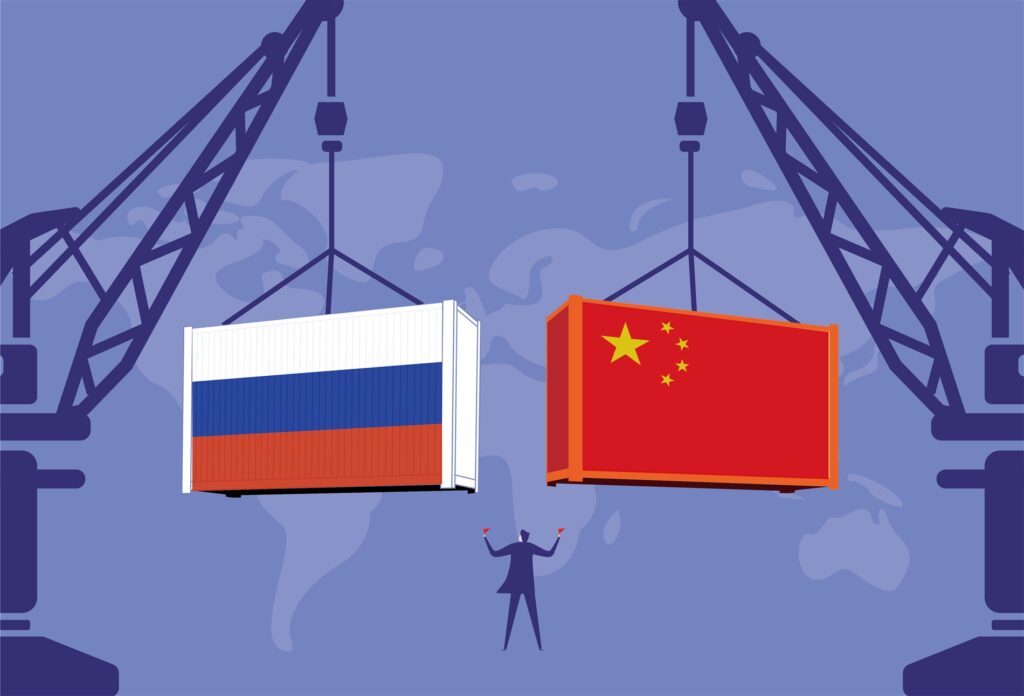
– The U.S. is considering imposing sanctions on Chinese banks to prevent China from aiding Russia’s military activities, which would also disrupt the strengthening trade relations between China and Russia.
– At the G7 foreign ministers meeting in Capri, U.S. Secretary of State Antony Blinken stressed that China cannot seek good relations with Europe while simultaneously enhancing Moscow’s ability to counter European interests.
– U.S. officials continue to accuse China of aiding Russia’s military activity in the Ukraine conflict by offering drones, satellite imagery, and other military supplies. China denies the accusations and opposes third-party interference in China-Russia trade relations.
– U.S. and European diplomats are actively urging China to influence Iran to avoid a direct military response against Israel as the regional tension continues to escalate.
– A deep space tracking station in Argentina, located on a tract of land that has been leased to China for 50 years starting in 2014, has been brought to the attention of U.S. officials who hold suspicions over the base’s military applications as the Chinese agency managing the station reports to the People’s Liberation Army.
Associated News References:
“U.S. Takes Aim at Chinese Banks Aiding Russia War Effort,” The Wall Street Journal, April 23 [Paywall]
“Rough Seas for Blinken and Co. as Israel, Iran and Ukraine Cloud G7 Meeting,” The New York Times, April 19 [Paywall]
“US says China is boosting Russia’s war machine in Ukraine,” The Business Standard, April 13
“The West urges China to intervene with Iran amid fears of a direct attack on Israel,” CNBC, April 12
“Argentina caught between US and China in battle over Beijing space base,” The Times, April 10 [Paywall]

– A Reuters review found that, even after the November 17 expanded embargo on advanced artificial intelligence Nvidia chips, Chinese universities and researchers are still able to obtain the chips through resellers.
– According to research firm Counterpoint, in the first quarter of 2024, Apple’s iPhone sales fell 19% on year as Huawei sales simultaneously rose 70% on year.
– A new International Monetary Fund report warns that the surge in U.S. and China debts could have a “profound” impact on the global economy and the interest rates paid by other countries.
– An increasing number of Japanese companies across many sectors are showing interest in, and following through on, expanding manufacturing in the U.S. due to concerns over China’s demand and Beijing’s influence.
– For the first time since 2003, the U.S. has overtaken Mainland China as the top export market of Taiwanese products, with exports to the U.S. increasing 65.7% year-on-year in March compared to a 6% increase to Mainland China.
– New numbers from the National Bureau of Statistics indicate that China’s consumer prices are barely increasing while U.S. numbers are improving, which could lead to a notable and lengthy gap and place pressure on the Chinese yuan.
Associated News References:
“Exclusive-China acquired recently banned Nvidia chips in Super Micro, Dell servers, tenders show,” Reuters, April 23
“Apple iPhone Sales Slump in China Amid Huawei’s Comeback,” The Wall Street Journal, April 23 [Paywall]
“IMF says US, China debt pose risks for global public finances,” The Business Times, April 18
“Japan Inc makes a renewed U.S. push as China fears mount,” Reuters, April 17
“US Overtakes China As Taiwan’s Biggest Export Market For The First Time In Over 20 Years,” Bezinga, April 11
“China Inflation Stalls as US Speeds, Adding to Pressure on Yuan,” Bloomberg, April 11 [Paywall]
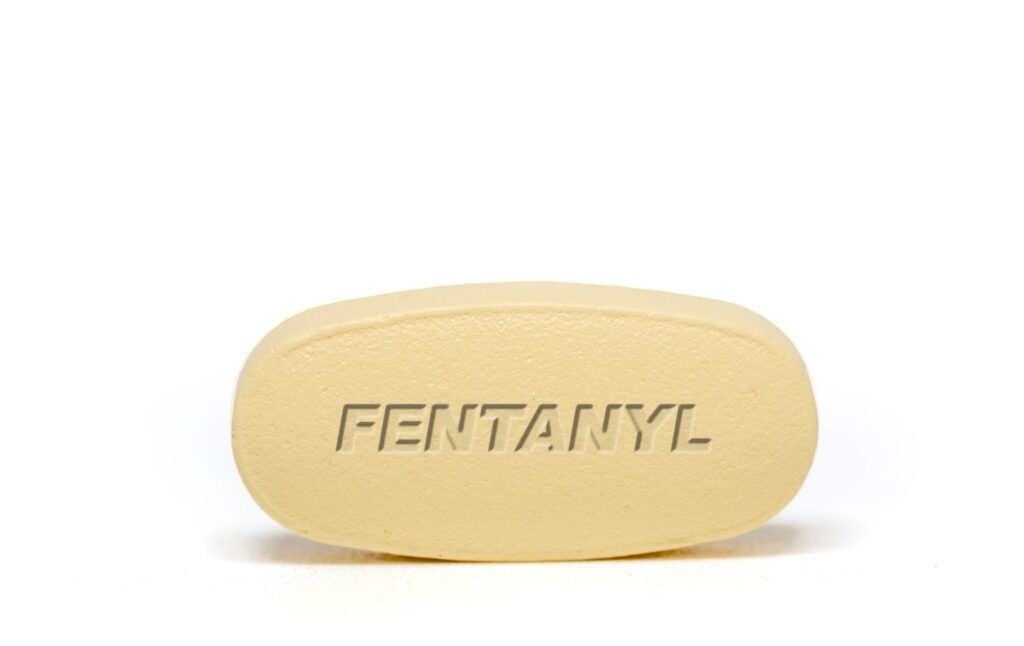
“US business group says policy ‘inconsistency’ hurting China investment,” Financial Times, April 23 [Paywall]
“Taiwan to discuss new funding with US as Chinese warplanes get close to island,” Reuters, April 21
“As Washington Keeps China at Arm’s Length, California Offers a Giant Panda Hug,” The Wall Street Journal, April 21 [Paywall]
“House approves sell-or-be-banned TikTok measure, attaching it to foreign aid bill,” NPR, April 20
“Chinese Auto Tech Should Be Banned at US Bases, Lawmakers Say,” Bloomberg, April 18 [Paywall]
“Wall Street Steered Billions to Blacklisted Chinese Companies, House Probe Finds,” The Wall Street Journal, April 18 [Paywall]
“U.S. Navy flies aircraft through the Taiwan Strait a day after U.S.-China defense chiefs hold rare talks,” NBC News, April 17
“China’s government is helping fuel the U.S. fentanyl crisis, House panel reveals,” Axios, April 16
“Tesla’s global job cuts include leading markets US, China,” Market Screener, April 16
“US airlines ask Biden administration to block additional flights to China,” CNN, April 12
“Biden urged to ban China-made electric vehicles,” BBC, April 12
“Blizzard games are returning to China this summer,” Yahoo! News, April 10
“Biden and Kishida forge new partnership, eyeing China and Russia,” Reuters, April 10
April 17 hearing by U.S.-China Economic and Security Review Commission
April 17 hosted by Wilson Center
April 16 hosted by Wilson Center & U.S. Heartland China Association
April 12 hosted by Foreign Policy Research Institute
April 11 hosted by Hudson Institute
April 25 hosted by University of Minnesota China Center & Brookings Institute
April 25 hosted by Reuters
April 30 hosted by Center for a New American Security
April 30 hosted by The Washington Post
Wednesday, April 10, 2024
Virtual (Zoom)
On April 10, 2024, the Institute for China-America Studies (ICAS) hosted a virtual public event to discuss U.S.-China cooperation on Artificial Intelligence (AI) amid their race for supremacy in cutting-edge technologies. The event featured two panelists: Mr. Paul Triolo, Associate Partner for China and Technology Policy Lead at the Albright Stonebridge Group and Dr. Denis Simon, a Distinguished Fellow at the Institute for China-America Studies and a recognized expert on U.S-China science and technology issues. The panelists were introduced by Dr. Hong Nong, Executive Director of ICAS, and Mr. Sourabh Gupta, Head of ICAS’ Trade n’ Technology Program, moderated the discussion.
The panelists were of the same view that artificial intelligence (AI), as embodied particularly in its next-generation form of Generative AI, is a technology of immense transformative potential; it is also a technology that could embody significant harms—be it in the sphere of disinformation, cybersecurity, or in terms of military applications…
Thursday, April 18, 2024
In-Person (Washington, DC) & Online (Zoom)
On April 18, 2024, the Institute for China-America Studies (ICAS) and The China Institute at the University of Alberta co-hosted a hybrid book talk and panel discussion on Dr. Nong Hong’s new book US-China Global Maritime Relations (Routledge 2024) which explores the U.S.-China maritime relationship within the global context and investigates six key maritime regions: the South China Sea, the Northeast Asia waters, the Indian Ocean, the South Pacific Ocean, as well as the Arctic and Antarctic regions.
The event was moderated by Mr. Philippe Rheault, Director of The China Institute. The book talk also featured three panelists who shared their respective perspectives on these critical issues: Mr. Gregory Poling, Director of the Asia Maritime Transparency Initiative at the Center for Strategic and International Studies, Dr. Dingli Shen, Professor Emeritus and Former Executive Dean at the Institute of International Studies at Fudan University, and Mr. Gilang Kembara, Research Fellow at the S. Rajaratnam School of International Studies of Nanyang Technological University in Singapore.
On Tuesday, April 23, 2024, Research Associate Yilun Zhang discussed Secretary Antony Blinken’s upcoming trip to China on TRT World.
On Tuesday, April 16, 2024, Senior Fellow Sourabh Gupta was quoted in South China Morning Post on the rare call between the U.S. and Chinese defense chiefs.
On Sunday, April 14, 2024, Senior Fellow Sourabh Gupta was quoted in South China Morning Post on U.S. and China public relations related to the conflict in Gaza.
On Saturday, April 13, 2024, Research Associate Yilun Zhang was quoted in South China Morning Post on Japan’s potential role in AUKUS.
On Wednesday, April 10, 2024, Senior Fellow Sourabh Gupta discussed Japanese Prime Minister Kishida’s state visit to the U.S. on CGTN America’s The Heat.
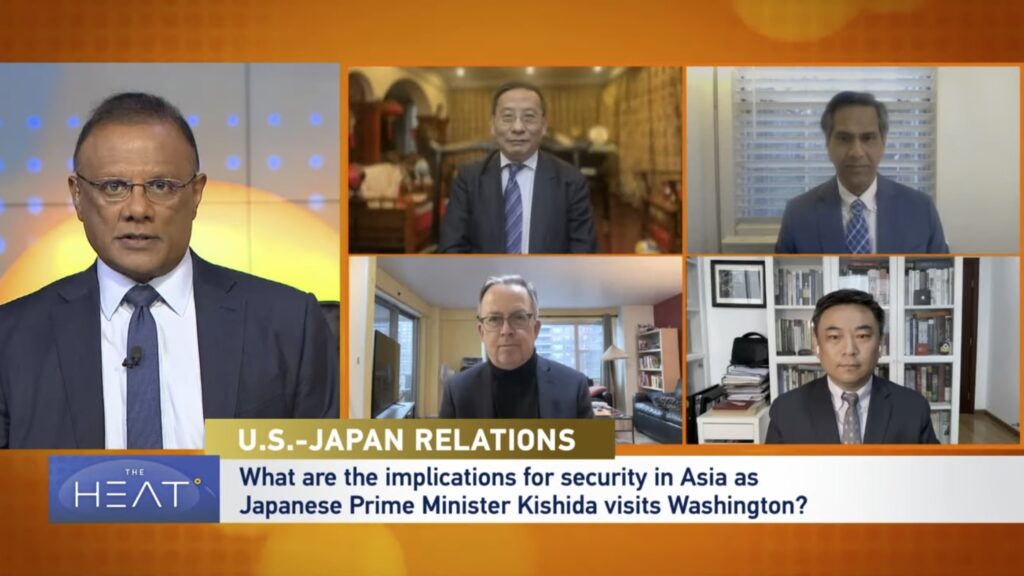
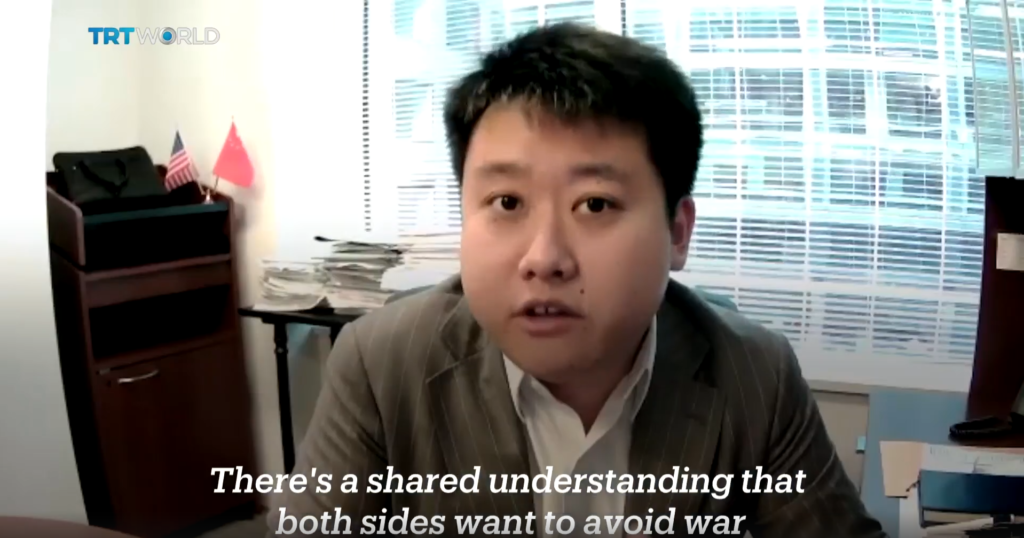

The Institute for China-America Studies is an independent nonprofit, nonpartisan research organization dedicated to strengthening the understanding of U.S.-China relations through expert analysis and practical policy solutions.
1919 M St. NW Suite 310,
Washington, DC 20036
icas@chinaus-icas.org
(202) 968-0595
© 2025 INSTITUTE FOR CHINA-AMERICA STUDIES. ALL RIGHTS RESERVED.